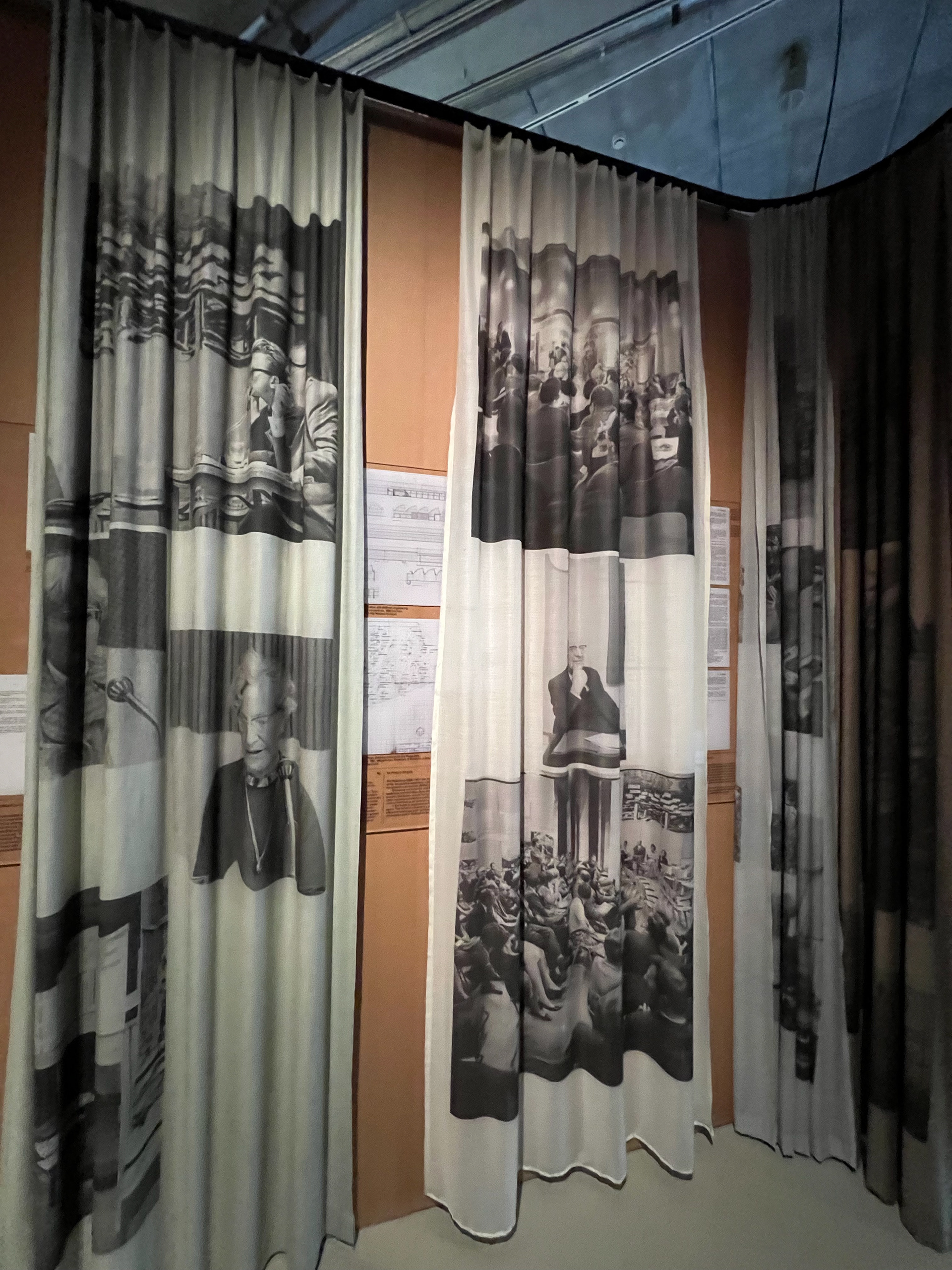I found the Het Nieuwe Instituut to be especially innovative in addressing and acting on the impacts of colonization. Artistic interventions were emphasized as the main way in which questions can be addressed and presented related to decolonization and shared history, in addition to exploring design exchanges that have occurred through colonization themselves.
An example of artistic interventions supported by the institution is the Asterisk group, which is enacting institutional redress through the context of the online collections, in which approximately 400,000 items in the collection have been digitized. The Asterisk group offers a space for critical work related to colonization and it’s impacts, it is also a reflection space for those working in the archive. While there, we got to see projects archivists had created to reflect on their own experiences working, such as a letter written by an archivist to a person in a photo that they were working on identifying. The letter detailed the emotions of the archivist in the midst of struggling to find more information for the person who had begun to feel familiar to them.
In addition to this group, I learned about the Archival Care Rider, which is rethinking the relationship between donors and institutions. Some of the work the group does included creating a format for archival policies and communicating with donors so there are clear expectations. I found this to be especially important in order to prevent complicated power dynamics that often occur between donors in institutions, as often donors are viewed from the perspective of institutions as stakeholders that are most important to appease, even when this impedes on the overall mission of the institution.
A project I found especially fascinating that is actively working to decolonize the institution is the work titled The Eleventh Island, which explores the decolonization of knowledge itself and what is considered as methods of research. The project, which creates the eleventh island as a sort of intangible landscape rooted in the locations of the communities' culture, confronts how colonization haunts us today. When hearing about the process of creating the project from its creator, they noted how throughout the process they were forced to confront not having traditional archives as a result of their communities displacement in addition to a difference in values when compared to the traditional academic processes of archiving, which are constructed through a lense that centers whiteness. As a result, they explored developing methodologies for communities with a lack of material heritage. They raised questions including, what if poetry was a research method? Could walking be a research method?
Learning about the projects at the Het Nieuwe Instituut made me consider the ways in which design processes and academic processes can be reframed and decolonized. Who gets to decide how information is gathered, stored, and presented? Who gets to decide what research means? Who gets to decide what is researched? Who will benefit by research? A designer's role in an effort to decolonization should not only be tangible solutions, systems, and resources but also redesigning the processes used for creation and exploration.



Some Of the many images I took at the Het Nieuwe Instituut